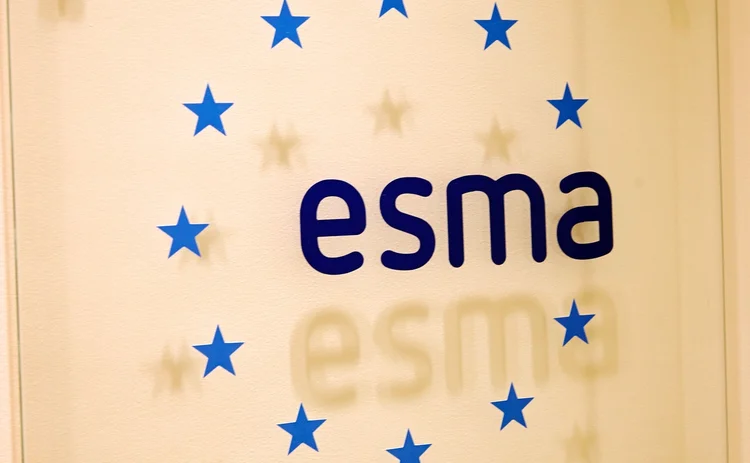
Esma questions CCP ‘free ride’ for sovereigns
Regulator has asked EC to take a stance on venues that let public entities clear without posting margin

European authorities are scrutinising special waivers granted to government entities by central counterparties (CCPs) that banks say unfairly penalise other members, and expose clearing participants to heightened risk.
The European Securities and Markets Authority (Esma) sent a letter to the European Commission on April 27 requesting a ruling on the legality of exemptions from initial margin and default fund payments granted to certain counterparties – specifically public entities, central banks and supranational entities – by EU CCPs.
Risk.net contacted all 17 CCPs authorised to operate in the EU. Of those that responded, only Eurex confirmed it offers such exemptions. It is understood LCH has offered similar exemptions in the past, but the clearing house would not comment for this article.
The head of clearing at a European bank member of Eurex says exempted entities are essentially free riders, and that other members are accruing risk on their behalf: “The reason you want to be in a clearing house is you want to get all the benefits – exposure netting, liquidity, compressionability on notional, capital efficiency – and it kind of feels like certain members are getting those benefits without any of the costs. There’s a view that others are paying on behalf of a privileged few.”
Eurex said waivers are applied on a case-by-case basis following a rigorous screening process. The CCP also points to the parallel with the EU non-cleared margin rules, which exempt sovereign and sovereign-backed entities that are allocated a zero risk weight under prudential requirements for credit risk capital.
“We have never made a secret out of it, because we believe it is in line with the overall regulatory framework and perfectly legitimate,” says Matthias Graulich, an executive board member at Eurex Clearing.
“In the bilateral world, it is accepted and legitimised by the regulation to take no initial margin from these zero risk-weight entities. We believe the same applies to the bilateral relationship between the CCP and such entities,” he adds.
The European Commission is yet to respond to Esma’s letter. Esma declined to comment for this article.
Eurex currently has four central bank clearing members: Deutsche Bundesbank; the Central Bank of Malta; Banque Centrale du Luxembourg; and Schweizerische Nationalbank (SNB). The treasury departments of Austria, the Netherlands and Germany are also members. Eurex declined to state which members currently or in the past have been granted exemptions. Asked whether they are the beneficiaries of any exemptions, the Deutsche Bundesbank, the German Treasury and SNB declined to comment.
The Central Bank of Malta said it is not, nor has been, granted such waivers. The others did not respond to requests to comment by press time.
“There is no differentiation whether we talk about Spain, Germany or Malta when it comes to applying a 0% risk weight or initial margin exemptions in the bilateral world. We, on the other hand, have minimum rating requirements, we are selective, and we reject the exemptions from sovereigns where we don’t want to have this credit risk,” says Graulich.
Elsewhere, Nasdaq OMX counts the Swedish National Debt Office as a direct clearing member, while LCH Ltd has the UK’s Debt Management Office (DMO) as a member of RepoClear. Nasdaq said it is awaiting further details from European authorities before commenting.
Although entities that qualify for zero risk-weightings are not obliged to post margin on non-cleared trades, Esma notes in its letter that Articles 41 and 42 of the European Market Infrastructure Regulation specify CCPs must collect initial margin and default fund contributions from their clearing members. The watchdog recommends the Commission clarify whether certain counterparties can be legally exempted from these requirements, and whether a specific amendment to Emir should be introduced to clarify the matter.
Balanced books
Graulich argues the exemption for sovereigns helps the overall regulatory objective of maximising the use of central clearing in the financial system.
“It is very important from a systemic risk management perspective that you have a balanced ecosystem of fixed payer clients and fixed receiver clients that allows dealers to run balanced books. Supranational and governmental entities play a very important role to allow for that balance,” he says.
But the head of clearing at the European bank says such exemptions expose the clearing system to added risk. “If you have members bringing in significant risk but they’re not bringing in initial margin or default fund [contributions], then you start to have a risky clearing house,” he says.
“It’s great to have a DMO in a clearing house because they are net receivers of fixed [rate] risk, and you need that to balance the rest of the market, [but] I don’t think it’s right to say they don’t bring additive risk, because they do,” he adds.
We have never made a secret out of [the waivers], because we believe it is in line with the overall regulatory framework and perfectly legitimate
Matthias Graulich, Eurex Clearing
Others believe such waivers are justified, and do not add to risk in the system. “If you asked a government agency to collateralise those exposures, what would they collateralise it with? Sovereign bonds. This would be futile, as it wouldn’t mitigate the credit risk, because if they go down the collateral is worth nothing,” says Christian Lee, head of the clearing, risk and regulatory team at consultancy Catalyst, and previously head of risk at LCH.
Moreover, if margin requirements are deployed at CCPs, it could push sovereign entities back into the non-cleared space. “There are good reasons to have more of the market cleared than not. The more liquidity there is, the easier it is for a CCP to deal with times of trouble,” says Lee.
And since public entities are not profit-seeking, Lee adds, the exemptions do not unduly penalise commercial participants in clearing: “While there is not a level playing field, it is advantageous to a different class of membership.”
No skin in the game
The head of clearing disagrees, warning the exemptions put other members at a disadvantage. Freed from the need to post initial margin or pay into the default fund, exempted entities lack the ‘skin in the game’ that should ensure all clearing members pull together in a member default scenario, he explains. If the CCP is unable to auction off the defaulting member’s positions, it is more likely to end up calling the default fund contributions of non-defaulting members.
“If you think about a default, you want to incentivise all parties to bid in an auction for the defaulting clearing members’ portfolio. So you want to ensure it gets dealt with and the whole clearing house doesn't have to pay for it. You have to be concerned that if you don't have any skin in the game, if you don't have any default fund at risk of being juniorised, what incentive do you have to bid in the auction?”
Another concern is that a clearing house would be able to hoover up market share if it had a policy of allowing margin and default fund waivers for public entities, while rival venues did not. The Committee on Payment and Markets Infrastructures and the International Organization of Securities Commissions have collaborated on a set of global standards for clearing, in part to ensure a level playing field between CCPs.
Graulich says there has been no recent ramp-up in the onboarding of public entity clearing members at Eurex.
It is understood the International Swaps and Derivatives Association is drafting a paper on the issue.
Editing by Philip Alexander
Only users who have a paid subscription or are part of a corporate subscription are able to print or copy content.
To access these options, along with all other subscription benefits, please contact info@risk.net or view our subscription options here: http://subscriptions.risk.net/subscribe
You are currently unable to print this content. Please contact info@risk.net to find out more.
You are currently unable to copy this content. Please contact info@risk.net to find out more.
Copyright Infopro Digital Limited. All rights reserved.
As outlined in our terms and conditions, https://www.infopro-digital.com/terms-and-conditions/subscriptions/ (point 2.4), printing is limited to a single copy.
If you would like to purchase additional rights please email info@risk.net
Copyright Infopro Digital Limited. All rights reserved.
You may share this content using our article tools. As outlined in our terms and conditions, https://www.infopro-digital.com/terms-and-conditions/subscriptions/ (clause 2.4), an Authorised User may only make one copy of the materials for their own personal use. You must also comply with the restrictions in clause 2.5.
If you would like to purchase additional rights please email info@risk.net
More on Regulation
Australian FRTB projects slow down amid scheduling uncertainty
Market risk experts think Apra might soften NMRF regime to spur internal model adoption
EBA to address double-counting caused by new capital floor
Existing EU capital add-ons for model risk would duplicate new Basel floor on internal models
The Emir error reports that cost banks millions
Dealers lambast onerous EU requirement to notify clients of all errors and omissions
Basel stops short on wrong-way risk
New guidelines a step in right direction, but experts warn they won’t prevent another Archegos
Trump 2.0 bank supervision: simpler but no soft touch?
Republican FDIC vice-chair Travis Hill wants more focus on financial risk instead of process
Iosco mimics industry codes to tackle pre-hedging dilemma
Advocates breathe sigh of relief, but Iosco release carries suggested restrictions
Ice’s AFX swoop shines spotlight on Ameribor prospects
CEO John Shay steps down after exchange group buys firm for mortgage and index synergies
Barr’s Fed exit likely to delay, but not destroy, Basel III
Market risk, op risk and leverage ratio all in the sights of Barr’s potential successors







